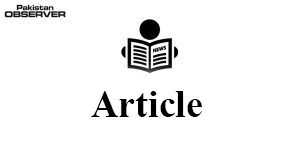IN the backdrop of widespread perception that the economy was not in good shape, Finance Division has issued a clarifi
cation highlighting prospects for future, rebutting reports that the economy was shrinking. In a detailed statement on Friday it said that the macro-economic adjustment policies have been introduced by the Government to support balance of payment and strengthen the market confidence, which will also move towards higher and inclusive growth. It asserted that there are early signs of recovery of economic activities in fiscal year 2020 that are encouraging.
The Finance Division has mostly relied on policies and programmes initiated in agriculture sector and plans of subsidies to industry for electricity and gas, export development package and Long-Term Trade Financing and Export Refinancing Scheme at subsidized rate. All these are welcome initiatives but unfortunately these have not led to the revival of economy mainly because of contradictions in policies. The division is seeing 3% agricultural growth on the back of increase in cotton production but farmers claim the recent decline in cotton production will cost the exchequer an approximate $7 billion because of shortfall in cotton production target of 15 million bales for the ongoing crop season. Apart from revenue loss, the country will have to spend significantly on import of cotton, which should be a shame for an agrarian country. There is dire need for general overhaul of the agriculture policy as at times we produce less and even food and cotton like items are imported and at times we are unable to dispose of surplus wheat and sugar due to poor strategy and marketing. Farmers also complain that they are unable to compete globally due to alarming increase in the cost of inputs. Recommendations made recently by Pakistan Kissan Ittehad need to be taken seriously if the government is genuinely interested in growth of the agricultural sector and tapping its full potential to increase exports meaningfully. These include tax exemption, subsidy on fertilizers, seeds, energy and water for irrigation, low interest loans, cheap crop insurance, high tariffs to block food imports and price support for more than 20 crops. The Finance Division is talking about prospects of improvement in the agriculture sector but it raised 2% tax on value addition in the fertilizer sector by a further 3% in the ongoing budget. We are also not allocating required amount for research and development both in agriculture and industry and despite repeated claims there is still much to do to ensure value addition. We have fertile land, irrigation water and toiling farmer and we only need to pursue the right policies to turn all this into tangible benefits for the country. Like farm products, our industries are also unable to compete in the global market because of alarming rise in the prices of electricity and gas besides increase in taxes and duties as well as upward revision in prices of POL products. Construction, IT and Telecom as well as Services sectors were also among major contributors of progress and development but they also received a hit due to a variety of taxes imposed on them. Prime Minister’s Housing Programme has the potential to stimulate growth in the construction sector provided the authorities concerned expedite implementation of the plan and give required incentives and concessions to builders and developers. It is also time to review the multiplication of taxes on IT and telecom sectors that hinder their growth. The Government also has plans to establish special economic zones but here again the pace of implementation is lacking. There is not much movement forward despite intervention of the Prime Minister who wants the federal and provincial authorities to accomplish the necessary formalities at a fast pace. The helplessness expressed by otherwise energetic and committed Chairman of Federal Board of Revenue (FBR) Shabbar Zaidi that money sent abroad illegally cannot be brought back and that still 15% money is being stashed abroad illegally also needs to be taken seriously by all concerned. We have a number of agencies and departments assigned with the task of preventing money-laundering and smuggling but their performance is not up to the mark. The situation demands an all-inclusive dialogue among all stakeholders to identify the ills and recommend a way forward. There is, of course, potential to stimulate growth and put the economy back on track but it demands harmonization of policies and programmes.










